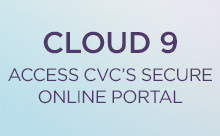Category Archives: Caregivers
Next post →A Home Away From Home
November 30, 2011If you are dealing with a chronic disease, life can be pretty complicated. There
are mountains of insurance forms, rivers of medical bills, oceans of procedures,
appointments, and a general disruption of life. Those of us at Caring Voice Coalition know this. You often count on the love and support of your family, but what if they aren’t around?
For many sufferers of chronic illness the treatment that is needed is not offered at
the local pharmacy. Your family practitioner may not have the training or tools to
help you. You may have to travel far from home to receive treatment. Does that add
to the mounting stress of dealing with an illness?
Fortunately, there may be a resource for you. The Hospitality House.
On January 14, 1972, Cyril and Claudia Garvey lost their 13-year-old son to cancer. Kevin had fought the brave fight, and received extensive treatment at Roswell Park Cancer Institute in Buffalo, New York. The Garvey’s were from Sharon, Pennsylvania, and made frequent trips to Buffalo for Kevin. They stayed in hotels, slept at the hospital, and did whatever they could do to be there for their son.
 The cancer community is like many, and you bond with similar people. During Kevin’s treatment, the Garvey’s met many families who were unable to afford any sort of lodging during the care of their loved one. They stayed in treatment rooms, cafeterias, and often in their cars.
The cancer community is like many, and you bond with similar people. During Kevin’s treatment, the Garvey’s met many families who were unable to afford any sort of lodging during the care of their loved one. They stayed in treatment rooms, cafeterias, and often in their cars.
The Garvey’s leapt into action, and started a fund to purchase property near the centers where Kevin was being treated. After finding a suitable location, volunteers donated paint, furniture, and sweat, and on July 26, 1972, The Kevin Guest House welcomed its first guests.
The Kevin Guest House spawned The Ronald McDonald Houses, the American Cancer Society’s Hope Lodges, and numerous other Hospitality Houses across the country and the world. Today they are part of a network of over 200 nonprofit organizations throughout the United States.
Not every Hospitality House is the same.
Most will take anyone, regardless of income. Rates for staying at a House range
from $15 to $60. Most of them count on donations and grants to keep the cost to
families in medical crisis low. The basic mantra at a Hospitality House,
however, is “Get Here, Get Better, and then we’ll figure out the finances.”
Many of the Houses invite people in treatment, and welcome their families. Some
cater specifically to a particular disease, and some are just for patients or just for
families.
Pittsburgh’s Family House operates four facilities around the University of Pittsburgh Medical Center. Together they offer 163 rooms and suites for patients and families.
The Helen K. Rossi House in Iowa City, Iowa is a 30 room facility near the University
of Iowa’s Children’s Hospital that caters specifically to the families of patients.
The Sumner Foundation Hospitality House in Gallatin, Tennessee is a 4-bedroom
home that calls itself “The Little House With A Big Heart.”
All of these facilities have something in common: A Home Away From Home. They
strive to provide a sense of normalcy during a very trying time. A guest at a House
in Kentucky was spending time with a young son going through treatment. She
found herself saying, “Going home. See you in the morning,” as she left the hospital.
She had a chance to cook herself a meal, do some laundry, and know that her child
was right next door.
If you or a loved one is pulled far from home for a life-saving treatment, talk to the
folks at the facility. If you’re lucky, there is a Hospitality House right next door! You
could have a Home Away From Home!
Lift Caregiving: Methods of Better Care
October 11, 2011In February of 2011, Katie Gilstrap did what people who have an idea for a startup company rarely do. She jumped.
While working for a community bank in Richmond, VA, Gilstrap became aware of a lack of support among family caregivers. At the bank, she was tasked with creating a product to help caregivers financially, but in her research, she realized money wasn’t enough.
“A lot of folks didn’t understand the full extent of the services available to them,” Gilstrap says. “The overwhelming response we got through interviews [at the bank] was, ‘Thank you for the response to our financial needs, but we have larger, more comprehensive issues here.’”
Earlier this year, Gilstrap and her colleague, Ted Ukrop, started Lift Caregiving, a resource that informs and assists caregivers on how to better care for their loved ones.
“We started Lift Caregiving because we realized that there was a huge need for caregiver support,” Gilstrap says. “We’re connecting people to the resources that will help make their experience easier. We also help counter the isolation people often feel when caring for a loved one by allowing them to connect with others who may be going through the same thing.”
What Lift Caregiving provides, essentially, are methods to explore better care. On the company’s website, caregivers can seek free advice – tips and insights in a multitude of areas including adult day services, end of life care, etc. – search for nearby providers, shop for useful products, and so on.
If a person, for example, cares for someone with Huntington’s disease, Lift Caregiving’s website would grant them a plethora of knowledge on how to provide better care, as well as offer support on how to manage their care and the stress often associated with it.
While the bulk of content on their site is aimed at those in the aging population living with serious illnesses, Lift Caregiving, Gilstrap says, has nowhere to go but up.
“We want Lift Caregiving to go as far as it can,” she says. “With the exception of our services section, which is currently for Richmond-area residents only, everything on our site is accessible from anywhere in the world.”
Their expansion, Gilstrap says, will soon take form by adding more services to their website, hosting community events, and establishing firm partnerships with local businesses, as they did with Caring Voice Coalition in April.
“CVC’s work improves the lives of people across the country every day, and we are grateful for the opportunity to offer our resources to their network of patients,” Ukrop said in a prepared statement.
According to CVC, their partnership with Lift Caregiving will help expand the reach of free resources for family caregivers.
“CVC understands the importance of family caregiving,” says Taylor Scott, Marketing Manager of Caring Voice Coalition. “We believe that our partnership with Lift Caregiving is an important way to expand our network of support and provide much needed resources to the family members and loved ones caring for our patients.”
If Lift Caregiving has found early success in targeting a specific niche, it can be credited to Gilstrap and Ukrop’s determination in implementing their vision, a notion Gilstrap offers words of advice on.
“It’s important to do your homework [when starting your own business], because there is a lot of risk involved in an economy like this,” Gilstrap says. “The difference in being your own boss is that you never really have time off. You have to love and nurture your idea because it will always need attention. We’re fortunate because there is such a big need for the services we provide. The sky’s the limit.”
Posted in Caregivers, Featured | Tagged care, caregiver, caregiving, CVC, disease, health, Huntington's, illness, Richmond, RVA, small business, startup | Leave a commentCaring Voice Coalition Patient Testimonials: Video
October 11, 2011Caring Voice Coalition is a National Non-Profit organization dedicated to the support of patients diagnosed with chronic and life threatening diseases. CVC does this through the three core programs of Financial Assistance, Insurance Education and Counseling, and Patient Support.
CVC has a dedicated, caring staff that provides each patient, each with their own unique and individual needs, with a compassionate voice on the other end of the phone. CVC’s staff and resources are dedicated to make a difference and improve the lives of patients with chronic illnesses.
Here is a short video that we produced. It highlights some of our patients, each with their own unique, individual needs, and the assistance that the dedicated staff at CVC was able to provide for them.
Posted in Caregivers, Featured | 7 CommentsSupport Resources & Community for Caregivers
September 16, 2011Two Richmond-Based Organizations Partner to Offer Support Resources & Community for Caregivers
Lift Caregiving and the Caring Voice Coalition, Inc. (CVC) announced a strategic partnership that will expand the reach of free resources for family caregivers.
 From free articles, assessment tools and access to experts, the functionality of liftcaregiving.com provides a comprehensive and actionable resource that was designed with the overwhelmed caregiver in mind.
From free articles, assessment tools and access to experts, the functionality of liftcaregiving.com provides a comprehensive and actionable resource that was designed with the overwhelmed caregiver in mind.
The announcement represents an expansion of Lift Caregiving’s non-profit partners, including those with the Alzheimer’s Association of Greater Richmond; The American Red Cross, Virginia Capital Region; the Better Business Bureau; the Older Dominion Partnership; the United Way of Greater Richmond & Petersburg; and Virginia Commonwealth University.
“Lift Caregiving is proud to be working with such an impressive organization. CVC’s work improves the lives of people across the country everyday, and we are grateful for the opportunity to offer our resources to their network of patients,” said Ted Ukrop, co-founder of Lift Caregiving.
Taylor Scott, Marketing Manager for the Caring Voice Coalition, adds, “CVC’s financial assistance and patient support services have helped improve the life situations of our patients. We believe that our partnership with Lift Caregiving is an important way that we can expand our network of support and provide much needed resources to the family members and loved ones caring for our patients.”
About Lift Caregiving:
Lift Caregiving is dedicated to positively changing the lives of family caregivers by offering them a holistic, content-rich resource that is helpful, actionable and easy to use. Founded in 2010, the company is headquartered in Richmond, VA.
About the Caring Voice Coalition:
Caring Voice Coalition, Inc. (CVC) is a national 501(c)(3) non-profit, charitable organization established in 2003 to provide financial, insurance education and personal support to individuals diagnosed with specific chronic or life-threatening diseases. CVC seeks to empower these patients by providing comprehensive programs delivered through a holistic approach by a staff of knowledgeable, dedicated and caring individuals.
Take Care, Caregiver
September 16, 2011We found this article so incredibly helpful. From our friends at Pulmonary Hypertension Association:
As a caregiver for someone with pulmonary hypertension, you spend a good deal of your time thinking about someone else. When your day-to-day concerns are tied to someone else’s comfort, it’s possible to put your own physical and mental health on the back burner.
While you may feel as if you don’t have time to tend to your own needs, the truth is that the most effective and supportive caregivers are those who also take time for themselves. Read over the tips below to make sure you’re giving yourself the attention you deserve.
15 Tips to Help You Care for Your Family Yourself
- Eat smart and exercise. You’ll be surprised at the energy you’ll gain from choosing nutritious foods and finding time for some daily physical activity.
- Get plenty of rest.
- Be kind to yourself. Give yourself credit for what you do.
- Set realistic goals and expectations.
- Cut yourself some slack. Nobody’s perfect. Even the best caregivers occasionally find themselves getting impatient, stressed or frustrated. Learn to think about these feelings not as evidence of your failure but as cues that you need some time to yourself.
- Schedule “me time.” Caregiving is a job and rest is your earned right. Reward yourself with respite breaks often.
- Set limits and let everyone know what they are.
- When people offer to help, accept the offer and suggest specific things they can do.
- Watch for signs of depression, and don’t delay in getting professional help when you need it.
- Grieve your losses, and then allow yourself to dream new dreams.
- Learn what helps you relieve stress – keep a list and use it. Try walking, reading, listening to music, take up a new hobby, or take a nap!
- Remember your spiritual health. You can make good use of your own spiritual beliefs to cope during difficult times. Many caregivers find great solace in meditation, prayer or time spent in nature.
- Share your feelings with family and friends.
- Seek support from other caregivers. There is great comfort in knowing that you are not alone. Talk with other caregivers at PH support group meetings, and try to arrange for a caregiver support group to be held at the same time as your local patient group. Also be sure to sign up for our email group for caregivers and other family members of PH patients. Join PHA Caregiver now (Requires a free Google account. Please allow a short delay while your group membership is processed.)
- If it gets to be “too much,” talk to your doctor, another healthcare professional or a member of the clergy.










